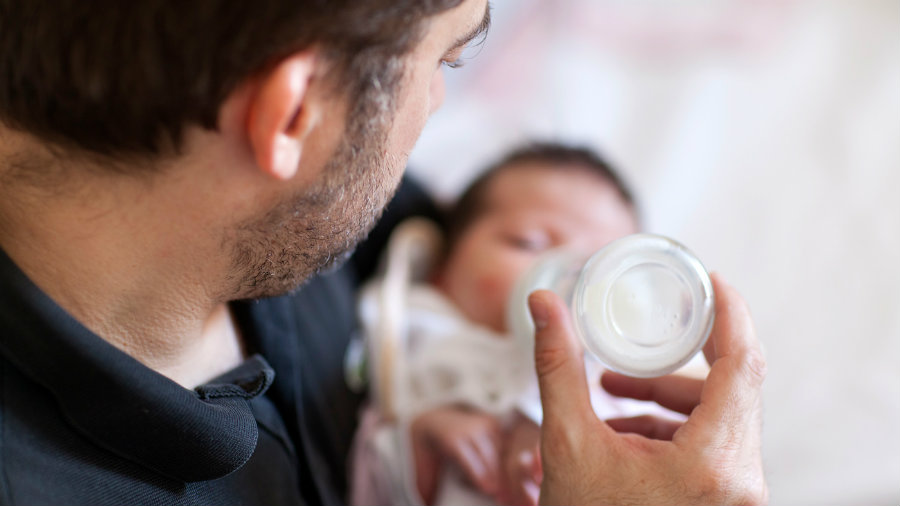A new study published Wednesday in the journal JAMA Psychiatry shows that new fathers are at risk of developing depression symptoms while they are expecting the child, and even after the birth of the baby.
It is commonly known that mothers can experience depression cycles before and after having a baby, due to natural hormonal changes and other factors that could escalate the symptoms. However, this new research shows that dads also face the risk of developing this mental state due to conditions like stress or poor health.

Study conduction, results, and recommendations
About 3,500 men in New Zealand were asked to participate in this investigation, and all of them had a pregnant partner at the beginning of the research. The study went through the third trimester of the pregnancy process and nine months after the birth of the baby. The study was conducted between 2009 and 2010.
The participants’ average age was of 33 years old. All of them underwent a series of interviews with psychologists for them to determine if there were any depression symptoms. During the mentioned interviews, each participant answered questions about their overall health, stress and family environment.
The results of the research showed that 2.3 percent of the studied participants (82 men) presented elevated prenatal depression symptoms, and 4.3 percent of the cases (153 men) presented elevated postnatal depression symptoms.
“The rates of antenatal and postnatal paternal depression that we found are consistent with previous similar studies in other countries including the US,” said Lisa Underwood, a research fellow at the University of Auckland in New Zealand and lead author of the study.
According to the analysis made by the investigation team, these registered depression symptoms were linked to adverse social conditions in the man’s environment, troubles in the relationship with the loving partner, or even a background of depression states.

Underwood stated that she considered surprising the fact that the depression, either pre or postnatal, was not associated by any means with factors like unplanned pregnancy, ethnicity, and anxiety. She also admitted that the research was limited in some ambits as their results could not carry full psychological diagnoses.
In this issue, Underwood said that there was a lack of the research in two critical stages in the pregnancy process: first and second trimester Also, there was not any research conducted during the exact time after the childbirth, meaning that the results could be even more complete if exhaustive investigations are carried out in the future.
However, even when admitting the study’s limitations, Underwood is sure that these New Zealand results are a mirror of what is happening in the entire world. She stated that both pregnancy and postnatal periods are “key opportunities to engage with expectant and new fathers to discuss depression symptoms and provide support.”
This is not the first study that wants to explain depression states in new fathers. Back in 2015, a research that included almost 700 hundred participants showed that 13.3 percent of them presented depression symptoms. In that case, lack of sleep and problems in the marital relationship were the factors that accelerated the paternal depression.
Source: CNN
